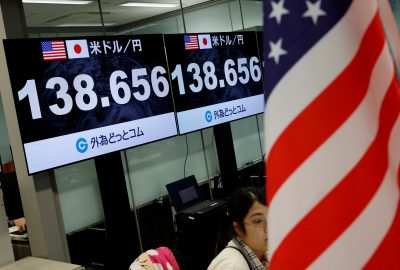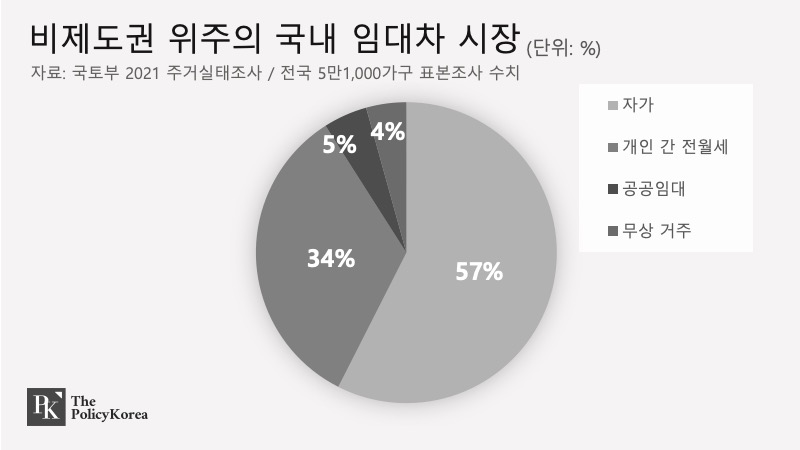[동아시아포럼] 세계 경제의 변화와 달러 패권체제의 미래
기축통화로서 세계 경제 주도하는 ‘미국 달러’ 전 세계 외환거래의 90%, 무역거래의 50% 차지 다만, 내·외생적 요인으로 달러 역할 축소 가능성도
[동아시아포럼]은 EAST ASIA FORUM에서 전하는 동아시아 정책 동향을 담았습니다. EAST ASIA FORUM은 오스트레일리아 국립대학교(Australia National University) 크로퍼드 공공정책대학(Crawford School of Public Policy) 산하의 공공정책과 관련된 정치, 경제, 비즈니스, 법률, 안보, 국제관계에 대한 연구·분석 플랫폼입니다.
미국은 세계대전 이후 글로벌 경제를 주도해 왔다. 하지만 최근 미국의 경제적 영향력이 감소하는 가운데, 신흥시장의 경쟁국들은 ‘탈중앙화’를 강조하면서 미국 중심의 경제시스템에 변화를 요구하고 있다. 일각에서는 이러한 변화로 인해 미국 달러가 기축통화로서 영향력까지 서서히 상실할 것이란 전망도 나오고 있다.

세계 금융시스템의 핵심, 미국 달러
이같은 전망과 달리 미국 달러는 여전히 국제 금융시스템에서 핵심적인 역할을 하고 있다. 국제결제은행(BIS)에 따르면 지난해 미국 달러는 전 세계 외환거래의 90%를 차지했으며 현물시장(spot market)·선도시장(forward market)·스와프시장(swap market)에서의 비중도 85% 수준으로 나타났다. 아울러 현재 세계 무역거래의 50%가 미국 달러로 결제되고 있으며 특히 아시아·태평양 지역에서의 비중도 3/4에 이른다. 외화 부채 중 달러화의 비중은 2010년 이후 70% 수준을 유지하고 있으며 미국 연방준비제도(Fed)의 국제통화사용지수(Index of International Currency Usage)도 68%대로 안정적인 상태를 이어가고 있다. 전 세계 외환보유액 중 달러화의 비중은 2012년 61.5%에서 2022년 58.4%로 감소한 반면, 같은 기간 유로화의 비중은 24.1%에서 20.5%로 감소했으며 위안화는 여전히 3% 미만에 머물러 있다.
세계 경제가 큰 변화나 위기에 직면할 때면 미국 달러의 강력한 지배력에 대한 우려와 불만이 제기되기도 한다. 일례로 1980년대 후반 일본이 경제 대국으로 부상하면서 기축통화로서 엔화의 영향력이 확대될 것이란 기대가 있었지만 실제로 오늘날 외환보유액 중 엔화의 비중은 5% 수준에 불과하다. 1999년 유로화가 출범했을 때도 국제사회의 기대감이 컸지만 유럽 바깥 지역에서의 유로화 비중은 크지 않았다. 중국 경제의 급성장도 세계 경제의 흐름을 바꾼 큰 변화였지만 중국 위안화가 미국 달러의 지배력을 위협하지는 못했다. 현재 위안화의 외화사용지수(Index of Foreign Currency Usage)는 3%대로, 영국 파운드화의 절반 수준에 머무르고 있다. 일본 엔화와 비교하더라도 2/5 수준에 불과하다. 중국의 경제 성장도 미국 달러의 위상을 약화시키지는 못한 것이다.
중국·러시아 등 주요국들, 달러 패권체제 비판
그러나 최근 러시아-우크라이나 전쟁 등 지정학적 긴장이 고조되면서 미국 달러의 지배력에 대해 비판의 목소리가 높아지고 있다. 그동안 미국은 외환시장에서 미국 달러의 흐름을 통제함으로써 영향력을 행사해 왔는데, 실례로 미국은 러시아의 우크라니아 침공에 따른 금융고립 조치로 러시아의 금융기관을 국제은행간통신협회(SWIFT)에서 퇴출시켰다. 이에 중국, 러시아 등 미국과 경쟁 관계에 있는 국가들은 ‘달러 패권’을 비판하며 달러의 역할을 축소해야 한다고 주장하고 있다. 말레이시아, 브라질 등 미국에 적대적이지 않는 일부 국가들도 ‘기축통화의 다각화’를 강조하면서 지난 1997년 아시아 금융위기 당시 일본이 주창했던 아시아통화기금(Asian Monetary Fund)의 부활을 추진하고 있다.
실제로 러시아에 대한 금융 제재 이후 위안화를 비롯한 기타 통화의 거래가 증가하고 있다. 올해 볼리비아는 아르헨티나, 브라질에 이어 남아메리카에서 세 번째로 위안화를 무역 거래에 사용한 국가가 됐다. 사우디아라비아도 중국과의 석유 거래에서 위안화 사용을 고려하고 있다. 하지만 위안화의 거래가 늘어난다고 해도 외환시장에 큰 변화로 이어지지는 않을 것으로 보인다. 미국 경제는 세계에서 규모가 가장 큰 데다 다양하고 역동적이며 유연하고 혁신적이다. 신흥 시장의 점유율이 늘어나면서 미국 경제가 전 세계 GDP에서 차지하는 비중은 줄었지만, OECD 회원국들의 GDP 총합에서 미국이 차지하는 비중은 2000년 37%에서 2023년 43%로 상승한 것만 봐도 알 수 있다.
무역적자 누적 등 재정 악화에도 달러 지배력 견고
미국의 달러 지배력을 악용한 제재를 우려한다고 해서 주요 통화를 위안화로 바꾸는 것은 좋은 대안이 아니다. 중국은 아직까지 폐쇄적인 금융시스템을 고수하고 있으며 당분간은 금융 시장을 개방할 의향이 없기 때문이다. 더욱이 중국도 미국과 마찬가지로 위안화를 통해 금융 제재를 시행하고 있는 데다 이미 아프리카 등 개발도상국에 대한 부채함정외교(debt-trap diplomacy)로 비난을 받은 바 있다.
대통령 선거 등 정치적 이슈와 신용등급 하락 등 재정 악화로 인해 미국 사회의 불확실성이 증가하는 상황에도 여전히 달러의 위상은 견고하며, 금융시장의 주요 행위자들 역시 여전히 미국을 안전한 투자처로 인식하고 있다. 미국은 민간과 공공부문의 부채 누적, 신흥국 등 세계 경제의 과잉저축으로 인해 오랜 시간 무역 적자가 지속됐다. 하지만 세계 경제에서 미국처럼 무역적자가 누적되는 상황을 정치·경제적으로 수용할 수 있는 국가는 거의 없다. 실제 중국은 지난 1994년 이중통화체제를 도입한 이후 무역 적자를 기록하지 않았다.
사실상 미국의 달러 패권체제에 대한 비판은 세계 금융시장의 주체들보다는 자국 내 유권자들에게 어필하는 주제다. 이들은 국제적으로 통용되는 미국 달러를 교환, 가치 척도, 가치 저장의 매개체로 활용함으로써 이익을 얻을 수 있기 때문이다. 하지만 세계 경제의 변화 및 미국을 비롯한 주요국들이 금융과 무역 문제에 직면하는 방식 등 내·외생적 요인에 의해 기축통화로서 달러의 역할이 축소될 가능성도 배제할 수는 없다.
Is the US dollar on its way out?
The United States has been instrumental in leading the post-war global economic system which it helped create. Yet its economic weight has declined over time and strategic competitors in emerging markets are calling for change, including possible ‘decoupling’. Some suggest that the US dollar’s days as the central global currency are numbered.

The US dollar’s role continues to be central to the functioning of the international financial system. The Bank of International Settlements estimates that the US dollar is involved in almost 90 percent of foreign exchange transactions and accounts for 85 percent of transactions in spot, forward and swap markets. Half of global trade and three-fourths of Asia-Pacific trade are denominated in US dollars.
The share of the US dollar held as official foreign exchange reserves has fallen from 61.5 percent in 2012 to 58.4 percent in 2022, but so has the euro (from 24.1 percent to 20.5 percent) and the renminbi share remains under 3 percent. Foreign currency debt denominated in US dollars has remained at about 70 percent since 2010. The Fed’s Index of International Currency Usage has also remained constant at about 68 percent.
Dissatisfaction with the dominant role of the US dollar emerges periodically, usually corresponding to a major shift in the global economy or an international crisis. For example, when Japan emerged as an ‘economic juggernaut’ in the late 1980s, many thought the yen would and should take on a much bigger role. It didn’t. Today, the yen only constitutes about 5 percent of foreign exchange reserve holdings. Even greater expectations arose when the euro was created, but outside of Europe the currency has not taken on a larger role.
The same is true for the major shock of China’s extraordinary rise over the past generation. The Index of Foreign Currency Usage gives the renminbi a 3 percent share, half that of the British pound and two-fifths that of the Japanese yen. It turns out it is very difficult to dethrone the US dollar.
Criticism of this outsized role for the US dollar has been more vocal in recent years, particularly in light of geopolitical tensions. By controlling the US dollar, the US government can yield a very big stick through, for example, blocking access to the SWIFT system of cross-border interbank transfers, as in the case of the Russian war on Ukraine.
It is no coincidence that countries who have been the most vocal about reducing the role of the US dollar in the global financial system tend to be geopolitical rivals of the United States. But some countries who have a less prickly relationship with the United States, including Malaysia and Brazil, have also been pushing for diversification. There is even a plan to resurrect the idea of an Asian Monetary Fund, first proposed by Japan during the Asian Financial Crisis.
Recent sanctions on Russia have led to its dealing more in renminbi and other currencies, highlighting the ability of the United States to apply pressure through its control of international financial markets, leaving other countries exposed. In 2023, Bolivia became the third Latin American country after Argentina and Brazil to use the renminbi in settling trade transactions. Even Saudi Arabia is considering using the renminbi in oil trade with China.
But it is unlikely that there will be any major shift soon. The US economy is not only the largest economy in the world but is also diversified, dynamic, innovative and relatively flexible. While its share of global GDP has fallen, this is due to rising shares of emerging markets. The US share in total OECD GDP has actually risen from 37 percent in 2000 to 43 percent in 2023.
The Chinese financial system is still relatively closed and the Chinese government is unlikely to be willing to free up its financial markets in the short- or medium-term — at least not under the current administration, whose priorities are moving in the opposite direction. If countries wish to avoid the US dollar because of potential sanctions, they probably would not be comfortable being exposed to China either, as it also applies sanctions and has been accused of ‘debt-trap diplomacy’, or other OECD countries whose approaches to sanctions generally dovetail that of the United States.
While politics in the United States are unpredictable and increasingly fraught, the government is stable and, despite the deteriorating fiscal policy outlook, the reputation of its monetary authority is solid. International actors continue to consider it a safe and secure place to invest.
The US government has been able to sustain large trade deficits over time — the result of excess net national savings in the global economy and its own excess public and private debt creation. Many other governments would find this to be a political non-starter. China, for example, has not had a current account deficit since its dual currency system was unified in 1994.
Loud calls to replace the US dollar appeal more to local domestic constituencies than to international financial actors. The global system gains from having an internationally accepted currency like the US dollar as a medium of exchange, unit of account and store of value. But its role will diminish at the margin at a rate that will be the function of exogenous factors, such as changes in the international marketplace, and endogenous factors, such as how the United States faces its financial and trade challenges.
원문의 저자인 마이클 G. 플러머(Michael. G. Plummer)는 존스홉킨스대학(Johns Hopkins University) SAIS Europe의 디렉터 및 국제경제학 교수로 재직 중입니다.




























